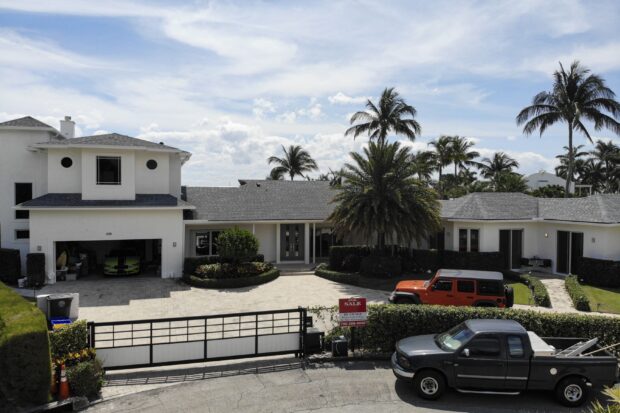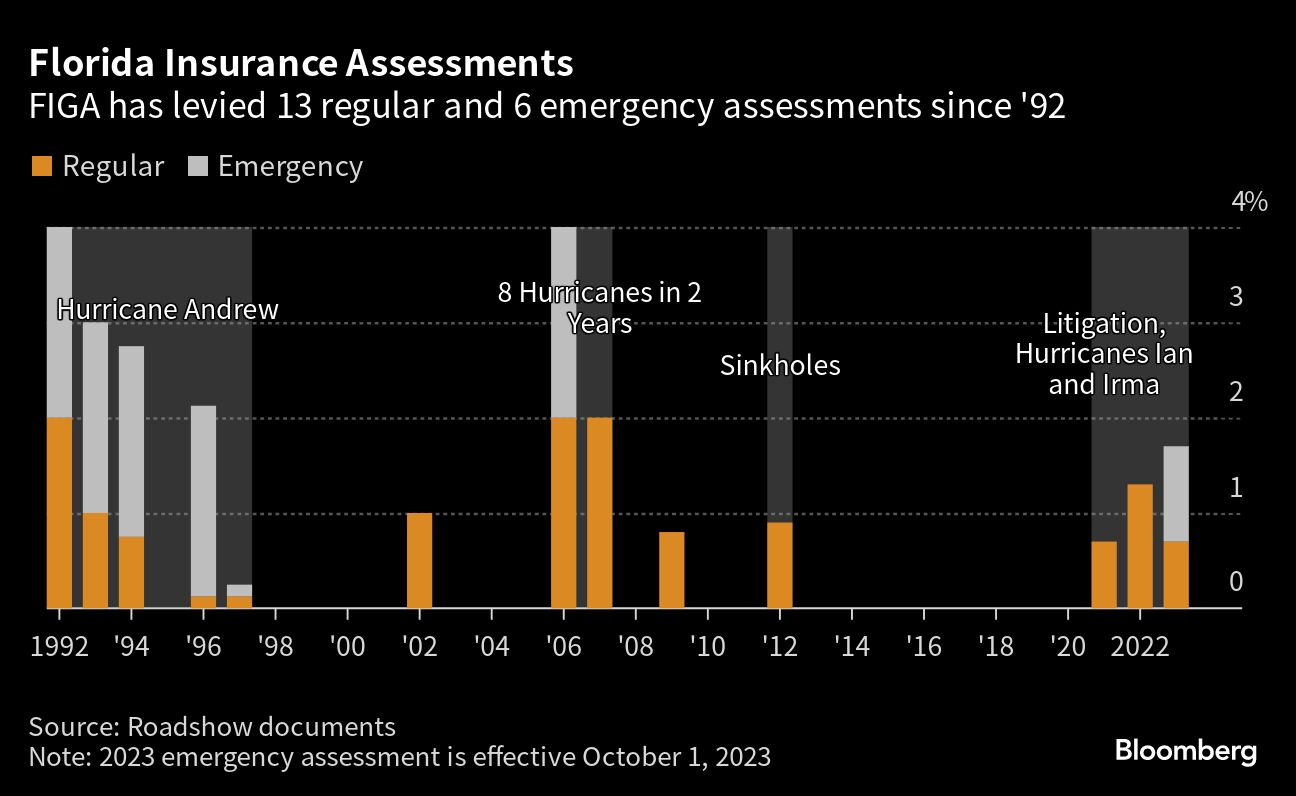The Florida Insurance Guaranty Association, which handles the claims of insolvent insurers, plans to borrow $600 million by selling municipal bonds, according to preliminary offering documents. It is the first time in three decades the agency has tapped the municipal bond market to help support insurance claims.
The borrowing provides the agency with needed liquidity. “Our funding sources are somewhat limited,” said Corey Neal, FIGA’s executive director.
Historically, the agency has used investment income and the assets of liquidated companies to cover payouts. The last time FIGA sold a muni bond for such purposes was in 1993 after Hurricane Andrew devastated South Florida, causing an estimated $27 billion in damages.
An uptick in insurance claims after last year’s Hurricane Ian and a deluge of lawsuits forced 10 property insurers to close since 2019, according to roadshow documents, pushing the agency’s costs higher.
Related: FIGA Imposes Assessment to Fund Insolvents’ Claims
Pullback among larger, national insurers in the state has concentrated exposure to smaller, more local firms. Farmers Insurance Group, for instance, no longer offers homeowners policies in Florida, and Nationwide has already paid out its full year’s budget for storm damage, according to a research note by Municipal Market Analytics.
“They’re not making enough profit,” said Neal, referring to insurers. “Some companies don’t have an appetite for Florida because it’s more risk.”
 Since 2019, 10 property insurers that collectively wrote over 440,000 policies in Florida have been declared insolvent, amounting to a net cost to FIGA of about $1.6 billion, according to bond documents. Rampant litigation and fraud, rather than storm damage, have been the primary drivers of their collapses, the documents said. In 2021, Florida represented just 6.9 percent of total homeowner’s claims, but 76 percent of the nation’s homeowner’s lawsuits.
Since 2019, 10 property insurers that collectively wrote over 440,000 policies in Florida have been declared insolvent, amounting to a net cost to FIGA of about $1.6 billion, according to bond documents. Rampant litigation and fraud, rather than storm damage, have been the primary drivers of their collapses, the documents said. In 2021, Florida represented just 6.9 percent of total homeowner’s claims, but 76 percent of the nation’s homeowner’s lawsuits.
The bonds, which are being sold in multiple series through the Florida Insurance Assistance Interlocal Agency, are backed by a 1 percent emergency assessment levied by the state’s Office of Insurance Regulation, similar to a tax on a range of insurance policies. The average premium in the state is about $4,200 on a roughly $350,000 home, so the assessment translates to about $42 a year, Neal said.
That levy is expected to generate $286 million annually, according to bond documents. FIGA currently has authority to levy as much as 4 percent of emergency assessments, and 2 percent of regular assessments.
“They are really stepping up to try to find solutions,” said John Meder, head of risk consulting and claims advocacy at Risk Strategies.
Bank of America Corp. is managing the deal which is slated to price on June 27, the documents said.
Given that Florida investors are familiar with similar structures backstopping insurance, the sale is expected to be well-received. In 2020, Florida’s State Board of Administration Finance Corp. seized on low-interest rates to borrow $3.5 billion for its catastrophe insurance fund, which functions like public reinsurance for member companies.
Related: Florida Boosts Hurricane Fund Debt Sale by 56% to $3.5 Billion
That reason coupled with it being summer, a typically strong season for munis, “I wouldn’t be surprised if this deal does pretty well,” said Jason Appleson, head of municipal bonds at PGIM Fixed Income.
Featured image: A “For Sale” sign outside a house in West Palm Beach, Florida, U.S., on Wednesday, April 7, 2021. Purchase contracts for single-family houses priced at $10 million or more surged 306% in March from a year earlier, the biggest gain since the pandemic started, appraiser Miller Samuel Inc. and brokerage Douglas Elliman Real Estate said in a report. Photographer: Marco Bello/Bloomberg





















 How Modern Is ‘Modern Enough’ for Insurance Applications?
How Modern Is ‘Modern Enough’ for Insurance Applications?  Why Claims AI Build vs. Buy Decisions So Often Miss the Mark
Why Claims AI Build vs. Buy Decisions So Often Miss the Mark  Marine Insurers Cancel War Risk Cover as Iran Conflict Escalates
Marine Insurers Cancel War Risk Cover as Iran Conflict Escalates  Uber Ballot Measure to Cap Personal Injury Fees, Limit Medical Damages Sparks Ire
Uber Ballot Measure to Cap Personal Injury Fees, Limit Medical Damages Sparks Ire 




